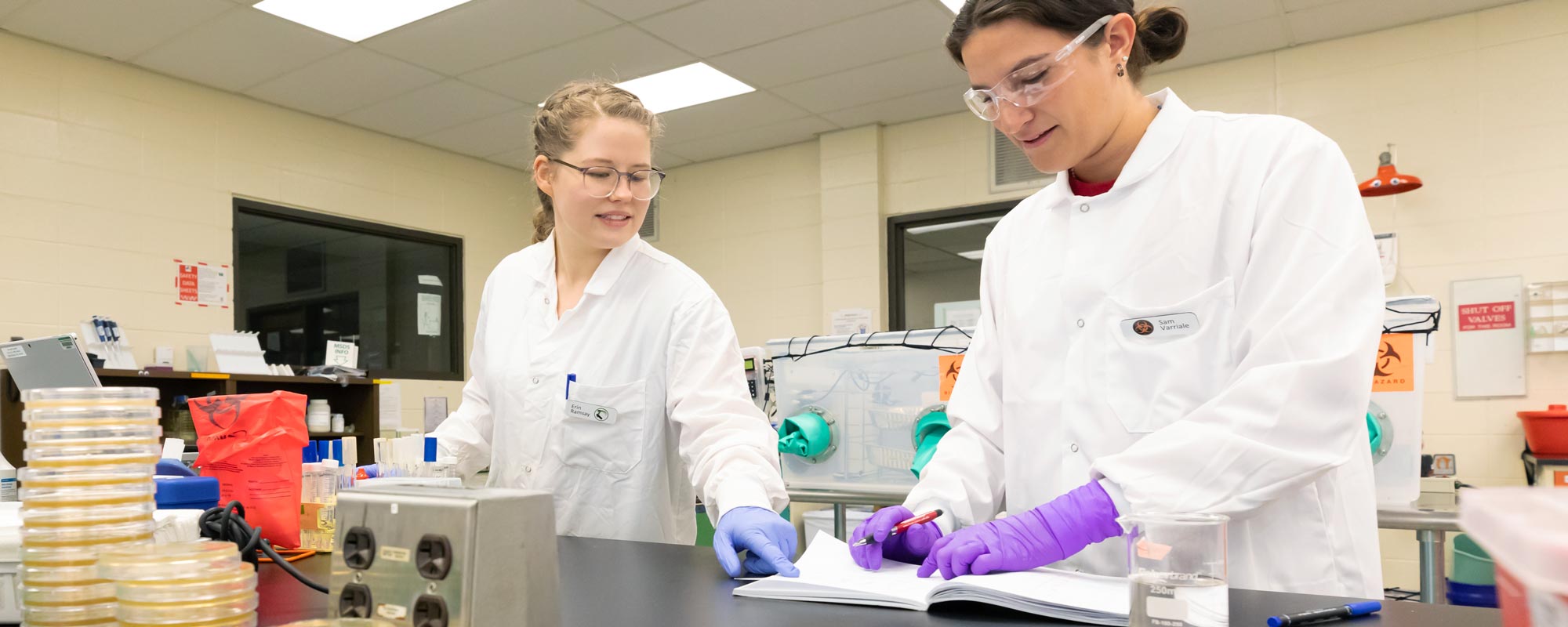Undergraduate

Why should I major in Food Science?
Food science prepares students for many interesting, rewarding and challenging professional career opportunities in industry, business, governmental and educational organizations. Due to the number and variety of opportunities, students graduating with a B.S.A. in food science readily obtain employment or continue studies for graduate school. Additionally, requirements for several pre-professional programs can be met while meeting earning a food science degree.
What can I do with a degree in food science?
There are multiple career options for a food science graduate. Depending on the concentration area, graduates can be employed in any facet of the food industry.
- Food Quality & Microbiology
- Food Chemistry
- Food Engineering
- Product Development
- Food Marketing & Sales
- Sensory Science
- Sustainable Food Practices
- More Career Options
What does a food science major study?
Courses of study vary depending on the concentration area. Students should select a concentration best matching their interests.
Course requirements for food science concentrations are in the UA Course Catalog. There are also printable PDFs of the checksheets and semester-by-semester degree plans available in Box.
The FDSC concentration is one of only 38 programs in the United States and the only one in Arkansas approved by the Institute of Food Technologists. It provides students with a strong background in basic and applied sciences and food chemistry, microbiology, engineering and quality control.
The food we consume daily is the result of extensive food research, a systematic investigation into a variety of foods' properties and compositions. After the initial stages of research and development, food products are mass produced using the principles of food technology. The FDTN concentration provides students with a multidisciplinary education consisting of core food science requirements in combination with a minor chosen by the student to compliment career goals.
Culinary sciences blend the artistic abilities of culinary arts with the scientific expertise of food science to shape the future of research and development in the food industry. The FDCU concentration leads to product development careers with an interdisciplinary background in food science and culinary arts. This concentration is a partnership with Northwest Arkansas Community College (NWACC). Students complete culinary arts coursework at Brightwater: A Center for the Study of Food (an academic division of NWACC in Bentonville) and are eligible to receive a Certificate of Proficiency in Culinary Arts from NWACC with no additional coursework. Culinary coursework will be transferred to the U of A and can be taken prior to admission while in residence at the U of A. It provides students with the coursework to be eligible to become a Certified Culinary Scientist through the Research Chef’s Association.
How can a food science student be involved?
The Department of Food Science and the University offer a variety of outlets for students to gain professional development experiences.